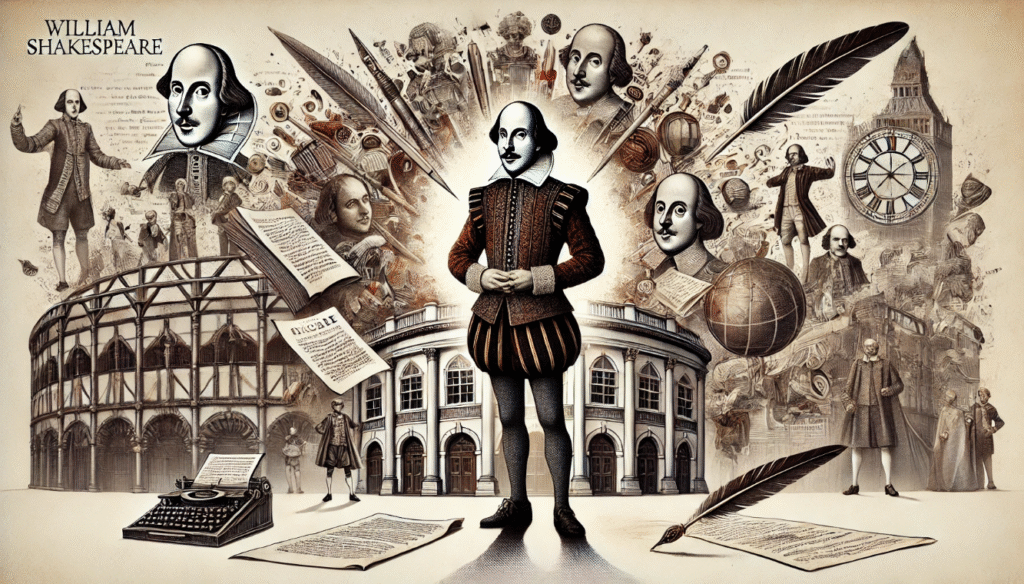
Understanding the Role of Shakespeare in the Formation of Theatre Traditions: A Deep Dive into His Lasting Influence on Modern Drama
Have you ever wondered how modern theatre came to be, or why the works of William Shakespeare continue to captivate audiences worldwide? The role of Shakespeare in the formation of theatre traditions is immense, shaping the very foundation of storytelling, acting, and performance techniques that we see today. 🌟 Whether you’re a playwright, actor, or simply a lover of theatre, understanding Shakespeare’s contributions can open a door to deeper insights into both classic and contemporary drama.
In this article, we’ll take a deep dive into how Shakespeare revolutionized theatre, blending genres, creating complex characters, and influencing acting techniques that are still being used today. By the end, you’ll not only appreciate his timeless genius but also gain practical knowledge about how his innovations are shaping modern theatre traditions. Ready to explore how Shakespeare’s legacy is alive and well in today’s performances? Keep reading! 🎬
Table of Contents
Toggle1. The Enduring Influence of Shakespeare on Theatre 🎭
When we think about modern theatre, it’s impossible to ignore the profound influence of William Shakespeare. While the world has changed dramatically since his time, the role of Shakespeare in the formation of theatre traditions remains as relevant today as it was in the 16th century. Shakespeare didn’t just write plays—he helped redefine the very nature of dramatic storytelling, laying the groundwork for everything from plot structure to character development. 🌟
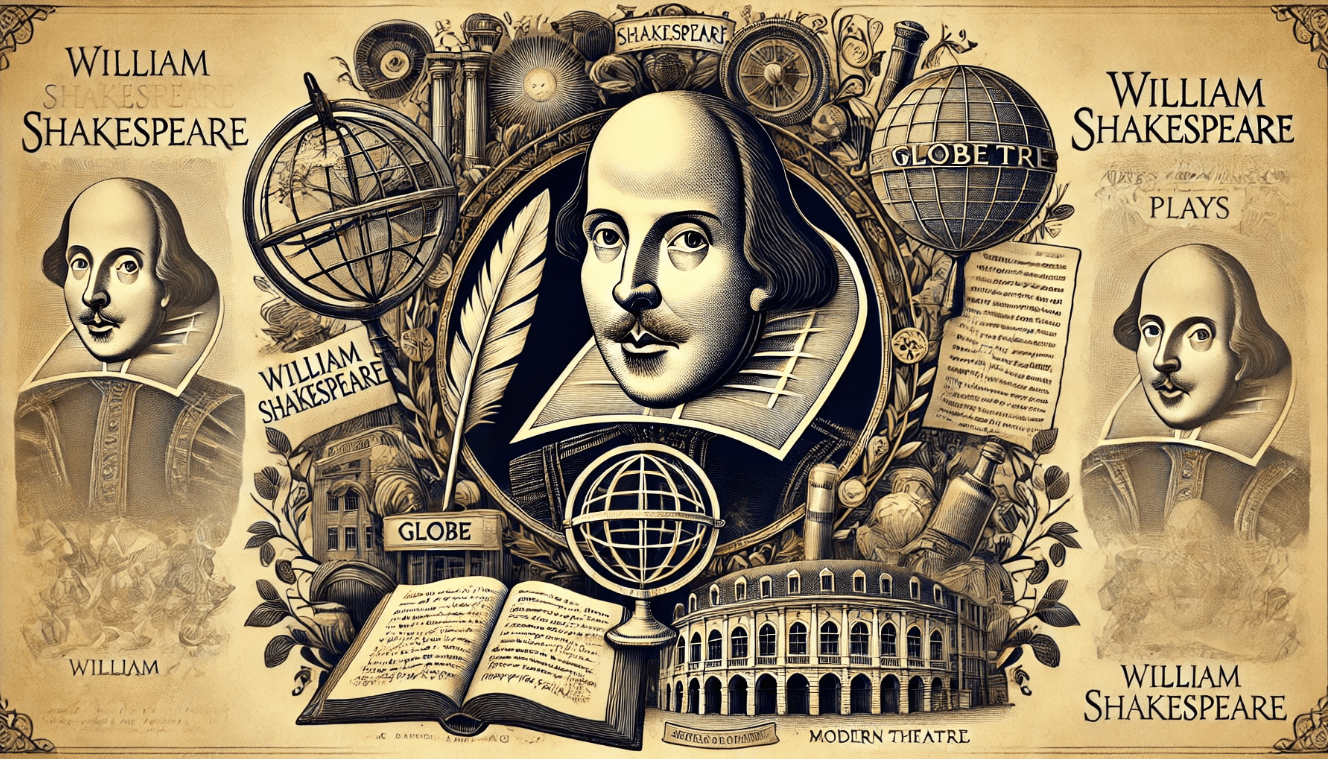
Shaping Modern Drama Through Complex Characters
One of Shakespeare’s most lasting contributions is his creation of multi-dimensional characters. Before his time, characters in plays were often stereotypes—heroes were purely good, villains were purely evil. Shakespeare broke this mold by creating characters that were deeply human, filled with contradictions and inner conflicts. Think of Hamlet, with his existential doubts, or Lady Macbeth, whose ambition leads to her downfall. These complex, relatable characters set the stage for modern dramas that delve deep into human psychology. 🧠
The Power of Language and Dialogue
Another key element of Shakespeare’s influence is his revolutionary use of language. He expanded the possibilities of how dialogue could convey meaning, emotion, and story. His mastery of iambic pentameter and the use of soliloquies gave actors a tool to express the innermost thoughts of their characters in a way that hadn’t been done before. Lines like “To be or not to be, that is the question” from Hamlet have become iconic, demonstrating how Shakespeare’s language continues to resonate through the ages. 📜
Genre-Bending and Theatrical Innovation
Shakespeare’s versatility in blending genres also set a new standard. He famously mixed elements of comedy, tragedy, and history, making his works accessible to a wide variety of audiences. From the light-hearted comedy of A Midsummer Night’s Dream to the tragic depth of Macbeth, Shakespeare showed that a single play could explore a range of emotions and themes. This approach laid the foundation for modern playwrights to experiment with genres and storytelling techniques in fresh and innovative ways. 🌈
The Rise of Professional Theatre
In addition to his artistic contributions, Shakespeare played a pivotal role in the establishment of professional theatre. He was a key figure in the creation of the Globe Theatre in London, where many of his works were performed. This helped transform theatre from a small, amateur affair to a full-fledged, respected industry. The concept of a professional acting troupe, which Shakespeare championed, is still in place today with theatre companies around the world performing both classic and modern works. 🎬
2. Shakespeare’s Impact on the Birth of Modern Theatre 🎭
Shakespeare didn’t just write plays; he played a crucial role in shaping the very foundation of modern theatre. His contributions helped transition theatre from its early, often religious roots to the sophisticated, professional art form we recognize today. Let’s take a closer look at how Shakespeare’s work influenced the birth of modern theatre and the lasting impact he has on the industry. 🌍
The Rise of Professional Playhouses and The Globe Theatre
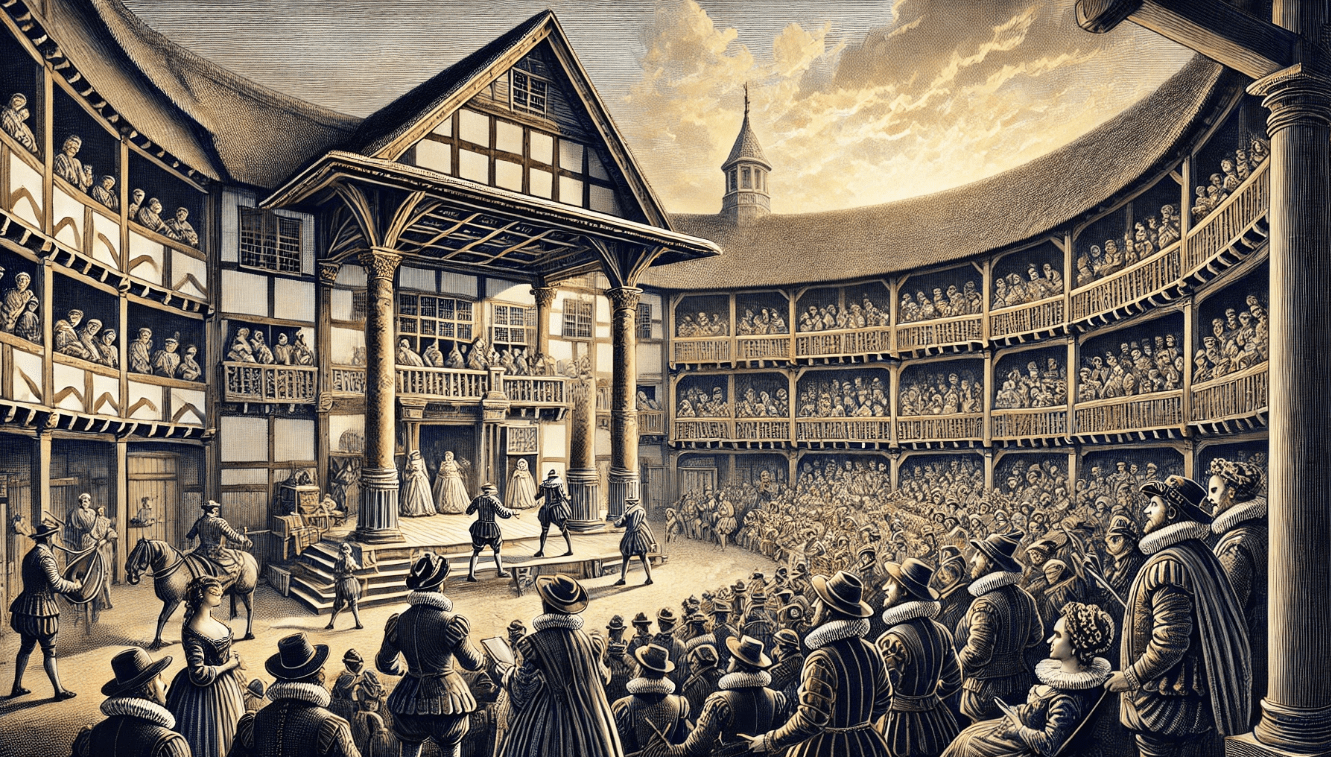
Before Shakespeare, theatre was largely performed in makeshift spaces or church halls, often associated with religious rituals or moral plays. However, Shakespeare’s vision, alongside his involvement with the Globe Theatre, revolutionized the stage. The Globe, which opened in 1599, became a model for professional theatre. It was purpose-built for public performances, allowing actors and playwrights to present their works to a broad audience.
This shift to permanent theatres helped formalize the industry, providing actors with a stable platform to develop their craft and creating the foundation for today’s theatre companies. The idea of a professional theatre troupe—like the one Shakespeare was part of, the Lord Chamberlain’s Men—continues in modern companies around the world. 🏛️
Introducing Complex Storytelling and Diverse Genres
Before Shakespeare, many plays followed predictable patterns: morality plays focused on religious themes or simple comedies with stock characters. Shakespeare’s works, however, introduced layers of complexity. By blending comedy, tragedy, and historical drama in his plays, he expanded what theatre could be. Plays like A Midsummer Night’s Dream and Hamlet broke away from conventional storytelling by introducing subplots, intricate character development, and themes that still resonate today—love, betrayal, power, and ambition.
This blending of genres set the stage for modern playwrights to experiment and craft narratives that didn’t have to adhere to one specific tone or style. Shakespeare made it clear that a single play could be multi-faceted and deeply engaging for diverse audiences. 📝
Elevating the Role of the Playwright
Shakespeare elevated the role of the playwright within the theatre world. Before him, plays were often viewed as collaborative efforts with little recognition of the individual writer. Shakespeare, however, was known for his unique voice and personal stamp on his works. His ability to write across genres, create memorable characters, and delve into complex emotional states made him one of the first playwrights to be celebrated as an artist in his own right.
This shift marked the beginning of the playwright’s critical role in shaping the entire theatrical experience. Today, writers, both in theatre and film, are acknowledged as central figures in the creative process. 🎭✍️
Expanding Theatre’s Appeal to the Public
Shakespeare was also key in making theatre accessible to a wide audience. His plays attracted people from all walks of life, from commoners to royalty. Unlike the religious or elitist theatre of earlier times, Shakespeare’s works spoke to universal themes of love, ambition, jealousy, and revenge. His ability to craft relatable characters and situations made his plays appealing to diverse groups, broadening theatre’s appeal and transforming it into a form of entertainment that could be enjoyed by all.
This democratization of theatre is still seen today, with productions tailored to all kinds of audiences—from experimental theatre to blockbuster Broadway shows. 🌍✨
Shaping the Performance Style
Shakespeare’s influence went beyond just the script; it extended to how plays were performed. His works required actors to bring complex emotions and deep character development to life, pushing the boundaries of what acting could achieve. The style of performance evolved significantly during this period, with actors beginning to focus more on delivering powerful, nuanced performances rather than simply reciting lines.
This emphasis on character-driven performances remains a cornerstone of modern theatre. Today’s actors continue to draw inspiration from Shakespeare’s plays, understanding that the heart of great theatre lies in the emotional depth of its characters and the authenticity of their portrayal. 🎤🎭
3. Shakespeare’s Key Contributions to Theatre Traditions 🎭
Shakespeare didn’t just change the way plays were written; he fundamentally shaped the way theatre is performed, experienced, and appreciated today. His contributions cover a broad range of aspects, from character development to staging techniques. Let’s take a closer look at some of Shakespeare’s key contributions that continue to influence theatre traditions worldwide. 🌍
1. Character Development and Complexity 💡
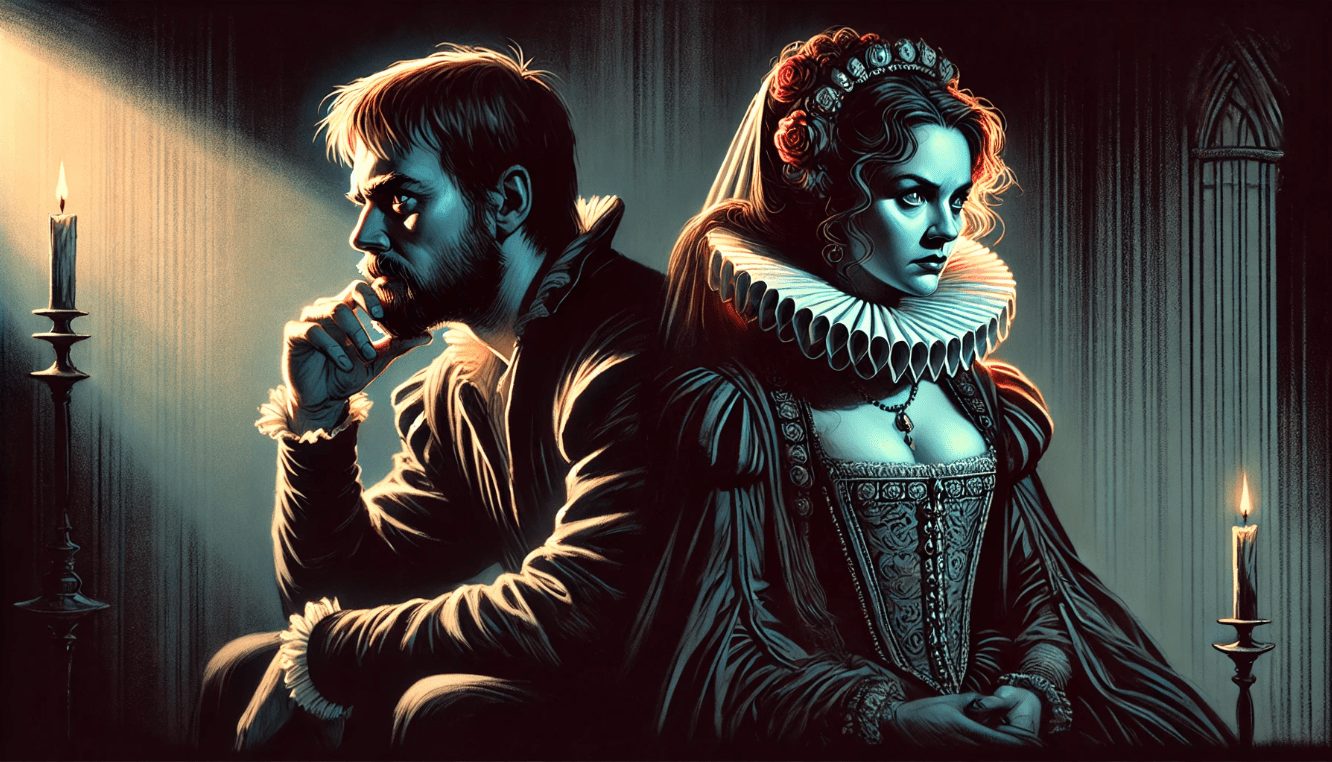
One of Shakespeare’s most profound innovations was the creation of deeply complex, multi-dimensional characters. Before his time, characters in plays were often one-dimensional, either entirely good or entirely bad. Shakespeare revolutionized this by crafting characters that were flawed, conflicted, and relatable. Think of Hamlet, whose indecision and inner turmoil make him a timeless character, or Lady Macbeth, whose ambition and guilt create a fascinating, multi-layered persona.
This focus on character depth opened the door for modern playwrights and directors to explore psychology, human behavior, and moral complexity in ways that had never been seen before. Today, well-developed characters are at the heart of almost every stage production, and audiences expect to see individuals who feel real and emotionally complex. 🎭
2. Language and Dialogue Mastery 📝
Shakespeare’s command of language is legendary. His use of blank verse and iambic pentameter gave his plays a rhythmic flow that made his characters’ thoughts and emotions stand out. Shakespeare also elevated the use of soliloquies—monologues where a character reveals their innermost thoughts. The most famous example is Hamlet’s “To be or not to be” speech, which is still quoted today.
His inventive use of language allowed characters to express complex ideas and deep emotions, creating a timeless resonance with audiences. In modern theatre, dialogue is often the primary tool for exploring a character’s psyche, and Shakespeare’s ability to express the inexpressible continues to inspire playwrights. 📜
3. Blending Genres and Innovation 🎬
Shakespeare’s ability to blend genres was a game-changer for theatre. He mixed elements of comedy, tragedy, history, and romance, often in the same play. This genre-blending gave his works incredible range, from the dark tragedy of Macbeth to the light-hearted comedy of Twelfth Night. By doing so, he demonstrated that theatre could be dynamic and multi-dimensional, able to evoke laughter, tears, and reflection all in one performance.
This approach continues to inspire modern playwrights who break traditional genre boundaries. Contemporary theatre often combines various genres, such as tragicomedy or dramedy, to appeal to wider audiences and explore complex themes. 🌈
4. Theatrical Space and Staging 🌟
Shakespeare also influenced how theatre spaces were used and how performances were staged. In his day, theatres like the Globe were open-air, immersive spaces where actors performed on a raised stage, and audiences were positioned close to the action. This made the experience more interactive, blurring the lines between performers and spectators.
Shakespeare’s minimalist approach to props and scenery also influenced modern theatre. He relied on the audience’s imagination to fill in the gaps, which allowed for more flexibility and creativity in staging. Today, many modern theatres continue to experiment with minimalist design, encouraging audiences to focus on the performance rather than the set. 🎬
5. Acting Techniques and Ensemble Work 🎭
Shakespeare revolutionized the role of the actor in the theatre. He demanded performances that went beyond simply memorizing lines. His characters are rich in emotional complexity, requiring actors to convey deep psychological states. Actors must interpret and embody the character’s emotional journey, something that requires significant skill and depth.
Additionally, Shakespeare’s works were often performed by acting troupes, where ensemble work was crucial. The collaborative nature of the troupe helped develop modern theatre’s focus on ensemble acting, where actors rely on one another to create a cohesive and dynamic performance. This practice continues in theatre today, where the strength of the entire cast is often more important than the performance of any single actor. 🤝
4. Shakespeare’s Influence on Modern Playwriting and Theatre Trends 🎭

Shakespeare didn’t just leave a legacy of iconic plays; his influence on modern playwriting and theatre trends is profound and far-reaching. From contemporary playwrights to the very structure of modern theatre, his contributions continue to shape how stories are told on stage. Let’s explore how Shakespeare’s work impacts today’s theatre world and how his influence is still seen in modern productions. 🌍
1. Shaping Modern Playwriting Techniques ✍️
Shakespeare’s approach to playwriting revolutionized the art. His use of complex characters, intricate plots, and multi-layered themes set a high standard for storytelling in the theatre. Modern playwrights often draw on his techniques, such as:
- Character Depth: Just as Shakespeare created characters with internal conflicts, modern playwrights focus on crafting individuals with psychological complexity. Think of characters in works by Arthur Miller (Death of a Salesman) or August Wilson (Fences), who, like Shakespeare’s creations, face deep internal struggles.
- Thematic Complexity: Shakespeare’s plays often explore themes of love, power, betrayal, and identity. This multi-dimensional approach to storytelling continues in modern theatre, where playwrights explore similar universal themes with fresh perspectives.
- Dialogue and Monologues: Shakespeare’s mastery of language is unmatched, and his powerful monologues are a core inspiration for modern playwrights. These monologues, which reveal a character’s innermost thoughts, are often seen in contemporary plays that focus on character-driven narratives. 📝
2. Shakespeare and Genre Blending 🌈
One of Shakespeare’s greatest strengths was his ability to blend genres seamlessly. He combined tragedy with comedy (The Merchant of Venice), history with romance (Richard III), and even mixed fantastical elements with reality (A Midsummer Night’s Dream). This genre-blending approach is a hallmark of modern theatre, where boundaries between genres have become increasingly fluid.
- Modern Adaptations: Contemporary playwrights and filmmakers often blend different styles to create dynamic, multifaceted performances. For instance, musicals like Hamilton combine history with modern hip-hop, much like Shakespeare blended historical events with dramatic flair.
- The Rise of Tragicomedy: Shakespeare’s blending of tragedy and comedy laid the groundwork for tragicomedy, a genre that remains popular today. Plays like The History Boys by Alan Bennett and The Curious Incident of the Dog in the Night-Time by Simon Stephens mix humor with emotional depth, keeping audiences both entertained and thoughtful.
3. Shakespeare’s Influence in Film and Television 🎬
Shakespeare’s impact extends far beyond the stage and into the world of film and television. Many modern films and TV series have drawn inspiration from his plays, adapting them into new contexts or directly referencing his themes and characters.
- Modern Film Adaptations: Films like West Side Story (based on Romeo and Juliet) and The Lion King (inspired by Hamlet) are just a few examples of how Shakespeare’s work transcends the theatre and influences mainstream culture. These adaptations retain the core themes of Shakespeare’s plays but are reimagined to fit modern sensibilities.
- Television Shows: TV shows like Shakespeare in Love and The Tudors focus on the life and times of Shakespeare, emphasizing how his work influenced both his contemporaries and modern creators. Even contemporary shows, such as Game of Thrones, borrow elements from Shakespeare’s work, such as political intrigue, complex moral dilemmas, and power struggles.
4. Shakespeare’s Influence on Theatre Trends 🌟
Shakespeare’s influence continues to guide modern trends in the theatre. His approach to storytelling, performance, and production design has left a lasting impact that modern theatre makers continue to build on.
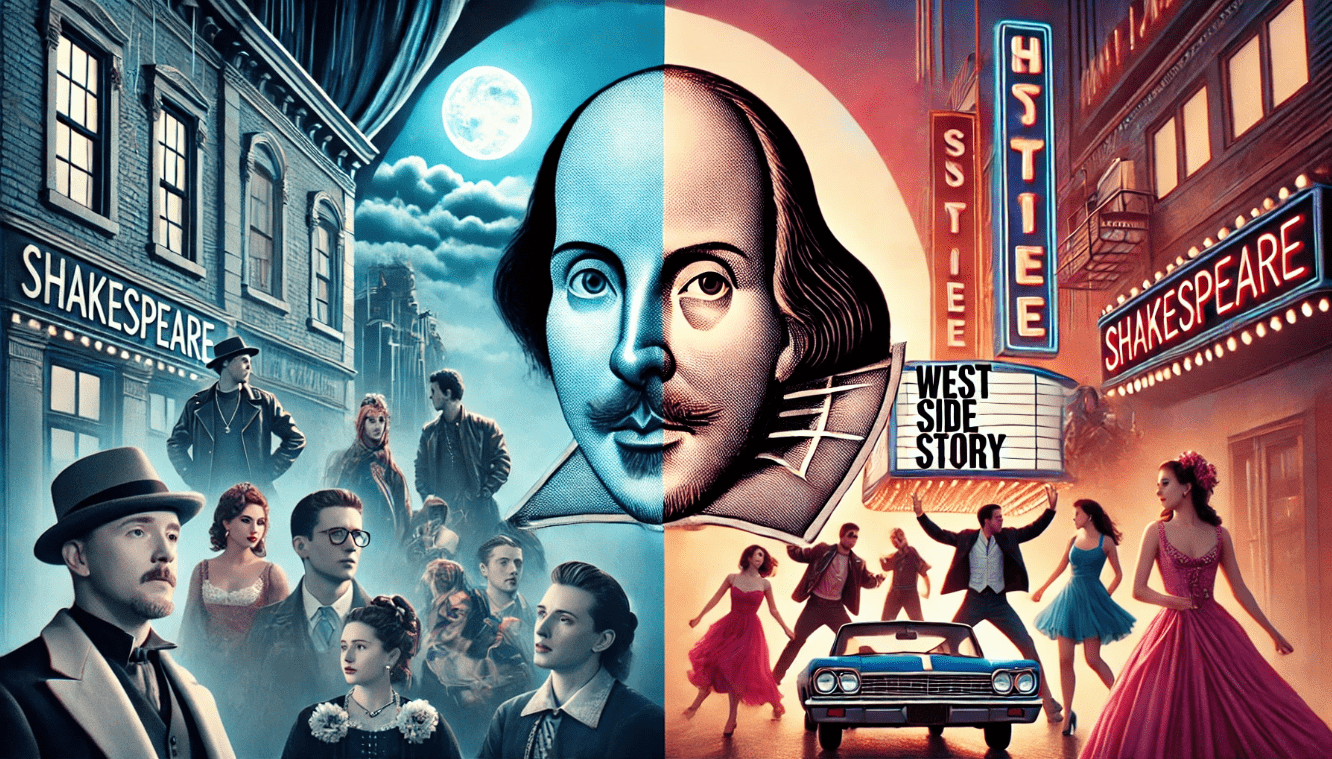
- Inclusive and Diverse Productions: In recent years, there has been a push for more inclusive and diverse representations in theatre, a trend inspired by Shakespeare’s wide-ranging appeal to all classes of people. Directors are increasingly casting non-traditional actors in Shakespeare’s plays, making his works more relevant to today’s global, multicultural audience.
- Innovative Staging and Adaptations: Shakespeare’s minimalist staging techniques, where the focus is on the actors and dialogue rather than elaborate sets, continue to influence modern productions. Contemporary directors experiment with non-traditional staging, immersive theatre, and minimalist design to create intimate, engaging experiences.
- Shakespearean Festivals and Global Influence: Shakespeare festivals, such as the Stratford Festival in Canada or the Globe Theatre’s summer productions in London, remain popular today, showing how his works are still a major force in theatre. These festivals often attract international audiences, highlighting Shakespeare’s continuing influence on global theatre.
5. Practical Takeaways: How Understanding Shakespeare Can Enhance Your Theatre Experience 🎭
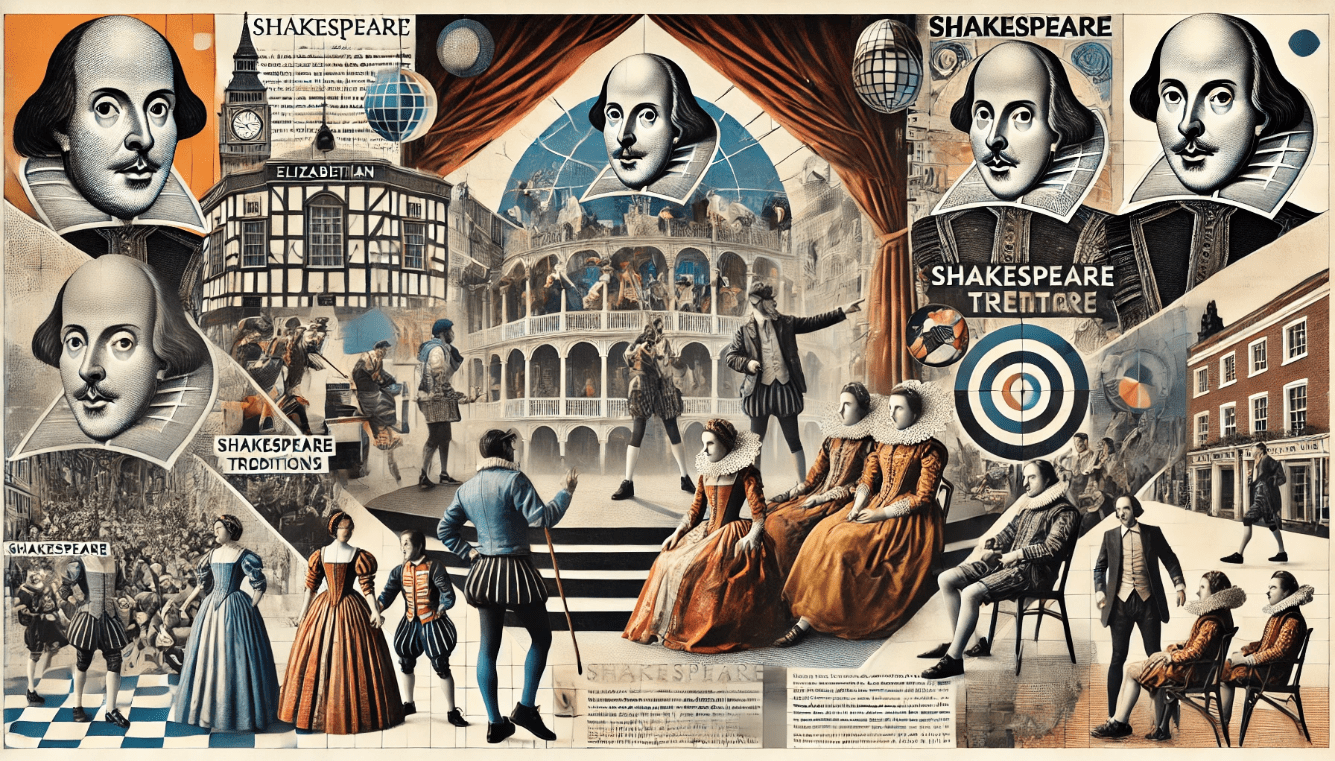
Shakespeare’s influence on modern theatre is undeniable, but how can this knowledge actually improve your theatre experience today? Whether you’re an actor, a playwright, or simply a lover of the arts, understanding Shakespeare’s contributions can deepen your connection to the performances you watch or participate in. Here’s how to make the most of his legacy. 🌟
1. Appreciate the Depth of Characters 💡
Shakespeare created some of the most complex characters in theatre history. From the tortured Hamlet to the ambitious Macbeth, his characters are rich in psychological depth. Understanding how Shakespeare crafted these personalities—by exploring internal conflict, contradictions, and moral dilemmas—can help you appreciate the intricacies of modern characters.
- Practical Tip: When you watch a play or film, try analyzing the characters through a Shakespearean lens. Look for inner conflicts, multifaceted personalities, and moral struggles. This deeper reading can add layers of meaning to the performance.
2. Recognize the Power of Language and Dialogue 📝
Shakespeare’s use of language and dialogue is central to his works. His mastery of soliloquies, metaphors, and iambic pentameter transformed the way emotions and ideas are expressed on stage. By understanding the significance of Shakespeare’s dialogue, you can gain a deeper appreciation for the way playwrights use language in contemporary theatre.

- Practical Tip: Pay attention to the language in the plays or shows you attend. Notice how the dialogue reflects character development, and see if you can identify elements from Shakespeare’s style—whether it’s powerful monologues or clever wordplay.
3. Understand Genre Blending and Its Modern Impact 🌈
Shakespeare didn’t limit himself to one genre; he blended comedy, tragedy, history, and romance in ways that are still common in today’s theatre. Modern plays often mix genres, creating productions that are both entertaining and thought-provoking.
- Practical Tip: Next time you watch a modern play or film, see if you can spot genre-blending elements. Whether it’s a tragic comedy or a historical drama with a humorous twist, understanding Shakespeare’s role in genre-mixing will help you better appreciate these layers in contemporary works.
4. Embrace Experimental and Minimalist Staging 🎬
Shakespeare’s approach to minimalistic staging and open-air theatres helped shift focus from elaborate sets to actors and storytelling. This trend continues today, with many modern productions opting for minimalist or abstract designs that emphasize character and plot over props.
- Practical Tip: Observe how modern productions use space and staging. Is the focus on the actors’ performances rather than elaborate scenery? How does this approach impact your engagement with the story? Understanding this shift can help you connect more deeply with contemporary theatre.
5. Take Inspiration from Shakespeare’s Influence on Acting 🎭
Shakespeare’s works require actors to dive deep into their characters’ emotional worlds. His complex roles demand a mastery of language, physicality, and emotion. Today, actors still draw inspiration from Shakespeare’s techniques, whether in classical or modern performances.
- Practical Tip: If you’re an actor or aspiring actor, study Shakespeare’s characters and performances. Practice delivering his famous soliloquies to better understand character motivation and emotional range. This exercise will help you refine your skills in bringing complex characters to life.
6. Appreciate the Global Reach of Shakespeare’s Works 🌍
Shakespeare’s influence is not limited to English-speaking countries. His plays have been adapted and performed across the world, in multiple languages and cultural contexts. This global influence demonstrates how his themes resonate with universal human experiences, from love and betrayal to power and ambition.
- Practical Tip: Explore different adaptations of Shakespeare’s plays from around the world. Watch a production in a different language or cultural setting. Seeing how his themes are interpreted globally can deepen your understanding and appreciation of his lasting impact.
6. Common Misconceptions About Shakespeare’s Impact on Theatre 🤔
Shakespeare’s influence on theatre is vast, but over the centuries, several myths and misconceptions have developed about his work and legacy. In this section, we’ll tackle some of the most common misunderstandings and set the record straight. By doing so, you’ll gain a clearer and more accurate understanding of his role in shaping modern theatre. 🌟
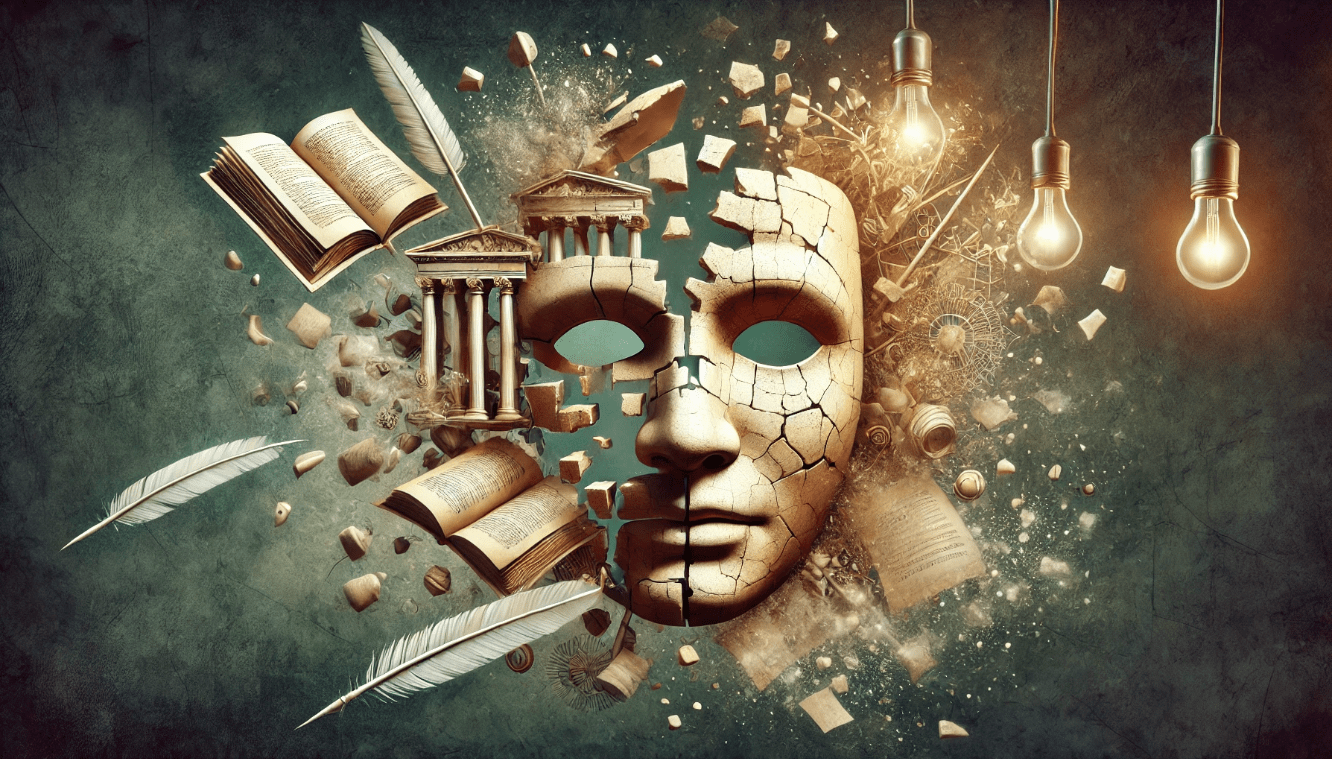
1. Shakespeare’s Plays Are Too Difficult to Understand ❌
One of the most common misconceptions about Shakespeare is that his plays are too hard to understand. While the language can be challenging, especially with his use of iambic pentameter and old-fashioned words, Shakespeare’s themes are universal and his characters are deeply human. His plays address love, ambition, jealousy, and betrayal—topics that are just as relevant today.
2. Shakespeare Only Wrote Tragedies 🎭
Many people associate Shakespeare primarily with his tragedies—Hamlet, Macbeth, Othello—but he wrote across multiple genres. In fact, he was a master of comedy, romance, and history, not just dark, tragic tales. Plays like A Midsummer Night’s Dream, Twelfth Night, and The Tempest showcase his comedic and romantic flair, while his historical plays like Henry V and Richard III tell compelling political stories.
3. Shakespeare’s Works Are Only for Academic Study 📚
Another misconception is that Shakespeare’s works are strictly for academic study, making them seem out of reach for casual theatre-goers or budding performers. While his plays are studied in classrooms, they are also meant to be experienced live on stage. Shakespeare’s work thrives in performance, where actors bring his words to life with emotion, movement, and energy.
4. Shakespeare Is Irrelevant to Modern Theatre 🚫
Some believe that because Shakespeare lived hundreds of years ago, his works are outdated and irrelevant to today’s theatre scene. In reality, his influence is still deeply felt in modern drama, influencing everything from narrative structure to character development. Writers, directors, and actors continue to be inspired by his timeless themes and groundbreaking techniques.
5. Shakespeare’s Theatre Was a Simple, Amateur Affair 🎭
There’s a myth that Shakespeare’s Globe Theatre was a rough, amateur space where low-quality plays were staged. In fact, it was a professional venue where actors performed in front of large audiences, including nobility and common folk alike. The theatre was built to accommodate a wide variety of people, and Shakespeare’s plays were known for their high-quality performances, complex writing, and captivating storytelling.
6. Shakespeare Was the Only Playwright Who Influenced Theatre 🏆
Shakespeare is often credited as the sole figure responsible for revolutionizing theatre, but this overlooks the contributions of many other playwrights of the time, like Christopher Marlowe, Ben Jonson, and Thomas Middleton. While Shakespeare was undeniably influential, the theatrical world in Elizabethan England was rich with innovation and creativity from many voices.
Shakespeare’s Lasting Legacy in Modern Theatre 🎭
Shakespeare’s influence on the formation of theatre traditions is undeniable, and his legacy continues to shape the stage today. From his groundbreaking work in character development and language to his innovative use of genre and staging, Shakespeare redefined what theatre could be and set the stage for generations of playwrights, actors, and directors. His works remain timeless, resonating with audiences across the globe because they explore universal themes—love, ambition, power, and identity—that continue to be relevant in modern society. 🌟
By understanding the role of Shakespeare in the formation of theatre traditions, we can better appreciate the rich history and evolution of the art form. Whether you’re an aspiring playwright, a theatre enthusiast, or simply someone who enjoys watching a good performance, embracing Shakespeare’s contributions will deepen your connection to both classic and contemporary drama.
Frequently Asked Questions (FAQs)
1. How did Shakespeare influence modern theatre?
Shakespeare revolutionized modern theatre by introducing complex characters, innovative storytelling techniques, and the blending of genres. His works combined tragedy, comedy, and history, which paved the way for modern playwrights to explore diverse themes and experiment with structure. His mastery of language and deep emotional depth in characters continues to influence playwrights and performers today.
2. Why is Shakespeare still relevant to modern drama?
Shakespeare remains relevant because his works explore universal themes like love, power, betrayal, and human nature, which are timeless and continue to resonate with audiences. His plays also set the foundation for modern theatre practices, such as character-driven narratives, intricate plotting, and genre-blending. These elements still form the core of contemporary theatre.
3. What are Shakespeare’s key contributions to theatre traditions?
Shakespeare’s key contributions include the development of complex, multi-dimensional characters, the introduction of soliloquies, and the blending of comedy, tragedy, and history in a single play. He also influenced modern acting techniques, focusing on emotional depth and character psychology, and revolutionized the use of language on stage with his mastery of verse and prose.
4. How did Shakespeare impact the role of the playwright?
Before Shakespeare, the playwright was often an anonymous figure in theatre. He elevated the role of the playwright by creating plays with distinct personal style, rich themes, and memorable characters. His influence established the playwright as a central figure in shaping the performance, making writing a key part of the theatre experience.
5. Is it necessary to understand Shakespeare to enjoy modern theatre?
While it’s not required to understand Shakespeare to enjoy modern theatre, knowing his contributions can deepen your appreciation of contemporary plays. His influence is still seen in the structure, character development, and themes of modern productions, so understanding his impact can enrich your viewing experience.
6. How has Shakespeare influenced modern film and television?
Shakespeare’s influence on film and television is immense. His plays have been adapted into numerous films, such as West Side Story (based on Romeo and Juliet) and The Lion King (inspired by Hamlet). Many modern TV shows and films also borrow Shakespearean themes of power, betrayal, and morality, demonstrating his enduring impact on storytelling across media.
7. Why are Shakespeare’s works still performed today?
Shakespeare’s works are still performed today because they offer timeless themes, rich characters, and flexible narratives that can be adapted to any era or culture. His ability to explore complex human emotions and social issues makes his plays relevant across generations, which is why they continue to be staged worldwide.
8. How can understanding Shakespeare improve my theatre experience?
Understanding Shakespeare can enhance your theatre experience by helping you recognize the foundational techniques that shape modern drama. You’ll better appreciate the complexity of characters, the richness of language, and the thematic depth in performances. This knowledge will allow you to engage more deeply with the play, whether you’re watching or performing.
